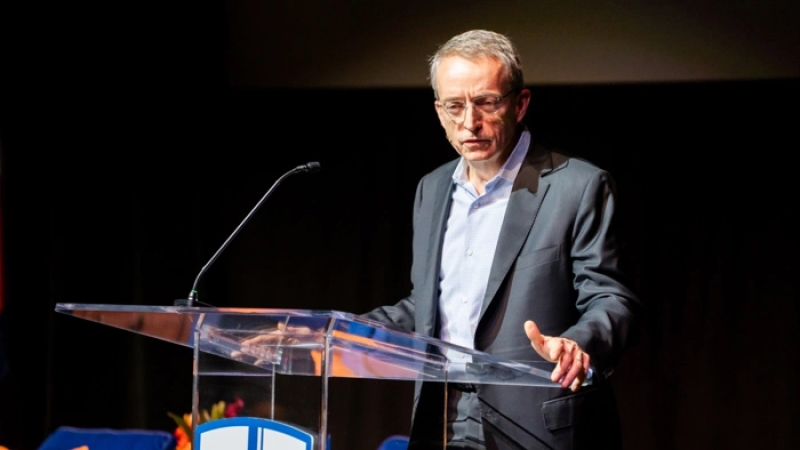
The former CEO of Intel, Pat Gelsinger, recently addressed an audience of Christians, urging them to harness the emerging potential of AI technology, expressing hope that AI can become “a force for good in this era.”
He led Intel from 2021 to 2024 and now serves as executive chair and head of technology at Gloo, a technology platform that connects various organizations within the faith ecosystem.
During his keynote address at “AI for Humanity: Navigating Ethics and Morality for a Flourishing Future,” hosted by The Christian Post and Gloo at Colorado Christian University, Gelsinger emphasized that “it's neither good nor bad” when it comes to AI.
A Christian himself, Gelsinger highlighted his history as the chief architect of a significant Intel microprocessor and his role in developing USB and Wi‑Fi technologies. He shared his optimistic belief that “God will use AI technology to fulfill His purposes,” just as He has used other great inventions throughout history.
He reflected on historical examples, stating, “When Christ was on the Earth, the greatest technology was the Roman roads,” which played a crucial role in spreading the Gospel across the Roman Empire.
Gelsinger also mentioned Johannes Gutenberg's press, which allowed Martin Luther to translate the Bible into German for the common people and “began the greatest period of human invention.”
He compared AI to this transformative period, saying, “I think of AI as another Gutenberg moment, with all the controversies and all the challenges associated with it.”
Christians of that time “embraced that great invention of the day to literally change humanity,” he said, and urged Christians of today to be just as active in utilizing AI.
He also emphasized the significance of establishing benchmarks for AI that prioritize human well-being. His company, Gloo, established an evaluation framework for AI models aimed at actively promoting human flourishing.
Honoring intellectual property, protected by the U.S. Constitution, was another key aspect Gelsinger highlighted as vital in shaping AI’s future.
He noted that AI could be instrumental in reducing global poverty and enhancing education for millions who would otherwise have no opportunities, noting that this is a goal relevant to Christians.
“One of my moonshots that I have before I leave this Earth is that we will be able to educate every child on the planet,” he said, noting that about 90% of humanity will likely have Internet access within the next five years.
Gelsinger pointed out that out of roughly 7,000 languages spoken worldwide, only 1,000 are easily translated, and AI could help unlock the remaining languages.
“Almost everybody living in extreme poverty lives in the other 6,000 languages,” he explained. “AI will enable us to conquer the other 6,000. So literally since Babel, we will have conquered language through AI for the first time.”
He highlighted that approximately 300 million children globally live in poverty, yet he harbored hope that AI could one day help teach every child in their native language.
He emphasized that tasks that might have taken a linguist 30 years could now be accomplished in just three months with AI technology.
“I believe that's the single most powerful thing that we can do to eliminate poverty,” Gelsinger stated. “I believe that's possible in our lifetime.”
“Do you think the heart of our Lord Jesus Christ would be honored if His Church did that?” he asked. “I do. And those are the kind of things that we will be able to do when we take AI on mission with us.”



















